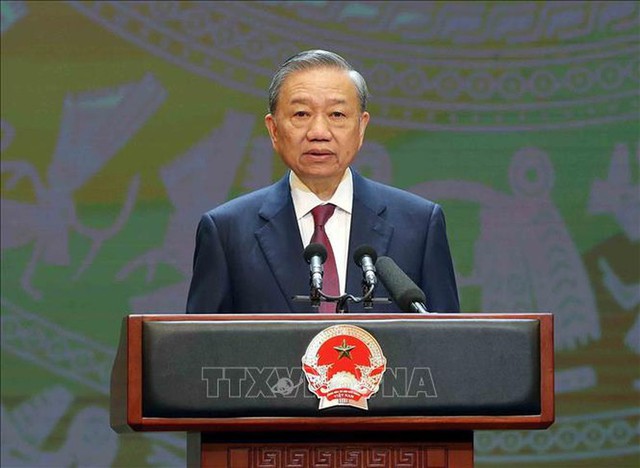Digital transformation – major driving force for Viet Nam to enter new era
VGP – General Secretary and President To Lam emphasized the need to undertake comprehensive and synchronous digital transformation as it is a driving force for Viet Nam to enter new development era.

General Secretary and President To Lam
In a recent article released on the occasion of the 79th anniversary of National Day (August 2, 2024), the top Vietnamese leader underlined that leaders of Party Committees, authorities, businesses and people must fully and responsibly understand and stay determined to carry out the digital transformation process, with a focus on the following tasks.
First, it is neccessary to build legal framework for digital economy in order to create a foundation for Viet Nam to grasp opportunities from the 4th Industrial Revolution and to boost digital transforamtion in all socio-economic sectors, to encourae innovation and protect intellectual property rights.
To called on subbordinate levels to regularly review, amend and supplement outdated regulations and create legal corridors for new economic models such as sharing economy, circular economy, artificial intelligence, making sure that these legal frameworks would not hinder development and they must serve national security and protect the legitimate rights and interests of people and businesses.
Second, it is neccessary to adopt proper policies to mobilize resources from people, businesses and economic sectors while creating an open and transparent environment for luring domestic and foreign resources for the development of science and technology as well as innovation.
At the same time, General Secretary and President To Lam stressed on the need to have breakthrough mechanisms to attract domestic and foreign talented persons and develop human resources capable to meet the requirements of digital economy and the 4th Industrial Revolution.
Third, the top Vietnamese leader reiterated the need to build an effective and efficient State apparatus by cutting intermediate management levels that are unnecessary and speed up power decentralization in association with strengthing inspection and supervision and further clarifying the role of the central and local authorities.
He underlined the need to promote the creativity and activeness of local authorities, to promote information and communication technology application, and to build digital platforms for agencies and organizations to connect and share databases.
By 2030, Viet Nam should be among top 50 countries around the world and rank 3rd in ASEAN in terms of e-government and digital economy indices.
Fourth, General Secretary and President To Lam called for accelerating digital transformation in association with ensuring security and safety in order to help Viet Nam make breakthroughs in the new era.
He urged authorities to focus on building digital society, comprehensively digitalizing State management activities, and delivering online public services at the highest level, creating a foundation for streamlining the State apparatú and reforming administrative procedures in a substantial manner.
Digital economy should be further developed to create new driving force for growth while fostering the application of digital technologies in all sectors and areas and creating new business models./.

